August and October Newsletter
Zero Waste Events Come to BGSU!
Waste reduction has been one of BGSU’s sustainability goals for quite some time. With the university generating in excess of 50 tons of waste in a typical week, any efforts to reduce that have both environmental and economic advantages, as less trash is sent to the landfill. “Zero Waste” is a way of implementing events that all but eliminates the environmental “footprint” created by that event, regardless of the size of that event. At such an event, everything served/provided is either reusable, recyclable, or compostable.
Zero Waste arrived at BGSU this fall in the form of a collaborative partnership between Campus Sustainability and BGSU Dining at both the Fall Welcome and the All-Campus picnics on August 26 and September 13 respectively. With a solid and committed core of student, faculty and staff volunteers, these two events, serving close to 3000 people each, resulted in the composting of 2320 pounds of organic material (over a ton!) and produced no waste! That’s over a ton of material deferred from the landfill, where it would have sat in the ground producing harmful methane gas with no benefits that will be made into compost, which is beneficial and productive to the growth process of plants and trees!
How was this accomplished you ask? The actual process is rather simple: Compostable plate, napkin and fork; recycling for the pop can and water bottle, and collecting leftover food for composting are all part of the process. The appearance is simple also: One container for cans/bottles; and one container for compostable items and food. What’s missing? A trash can, since the only trash generated were items brought by guests, such as disposable coffee cups, or other personal items, which were collected separately.
The monitoring/staffing of the compost/recycling stations is critical to the success of such an event and our volunteers did a stellar job at that, resulting in no contamination of the compost whatsoever! BGSU partners with NAT Transportation to haul our compostables to Hirzel Farms in Pemberville, a class 2 composting facility. This is the same location that we send our pre-consumer compost from dining center to on a regular basis. The costs of transporting and accepting the compost are covered by the Student Green Initiatives Fund, and those weights average between 53 and 56 tons annually.
The success of these two events shows that BGSU can in fact employ simple measures to reduce its waste, increase our diversion rate, save money and help the planet! It just takes effort, commitment, and collaboration! Many thanks to BGSU Dining for their leadership and proactivity in obtaining compostable serving items and supporting this initiative and to all our volunteers! You really did make a difference!
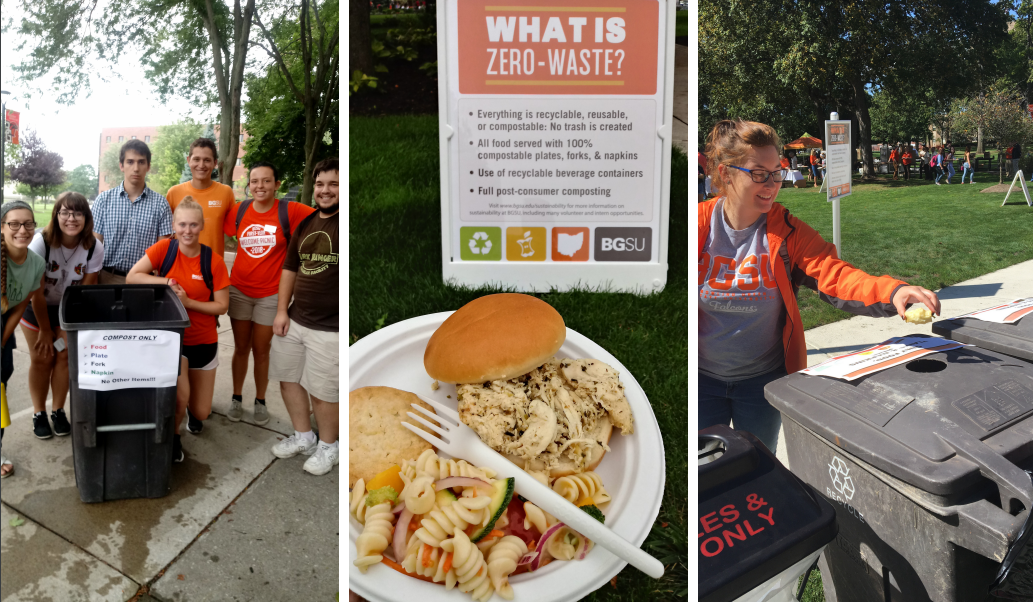
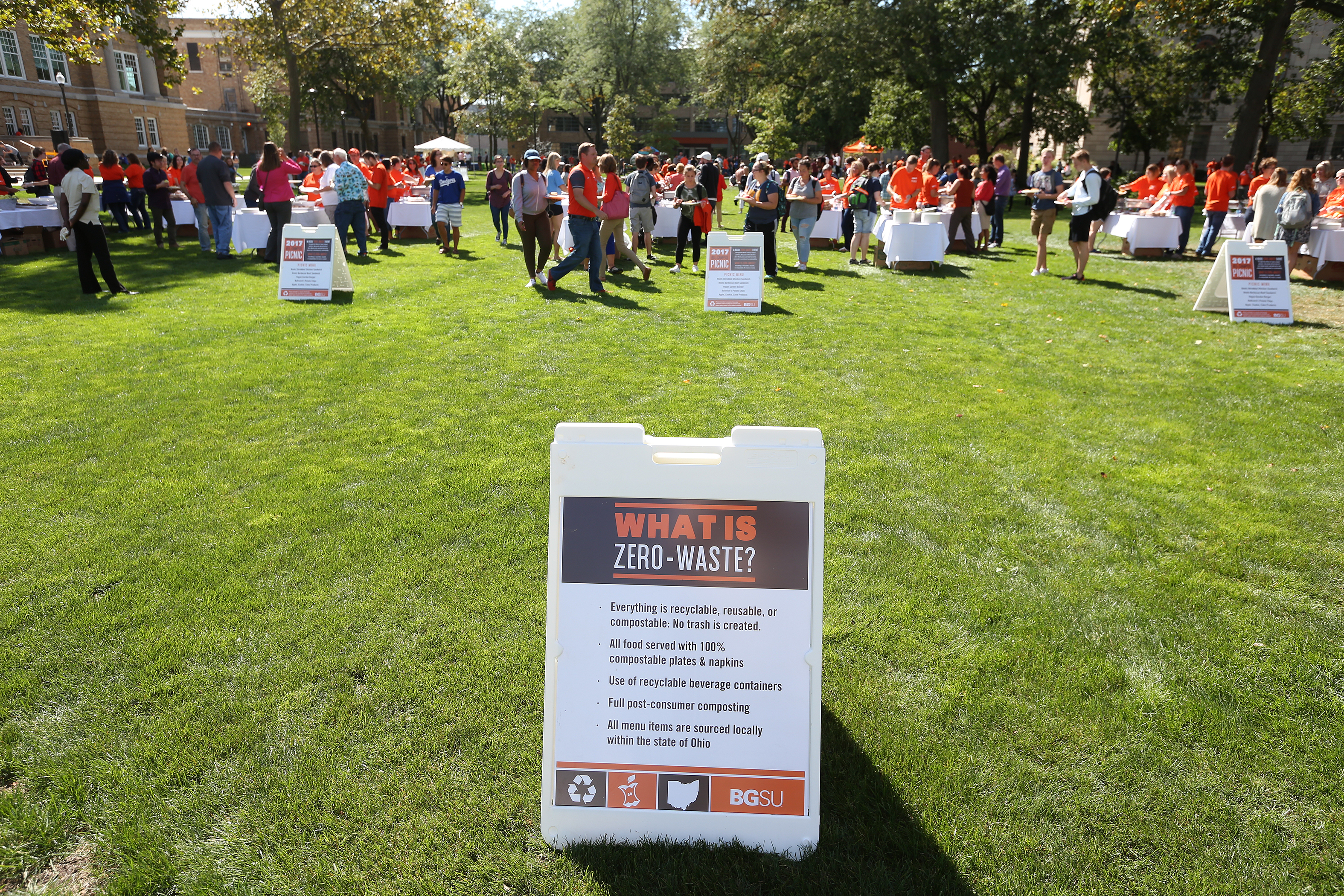
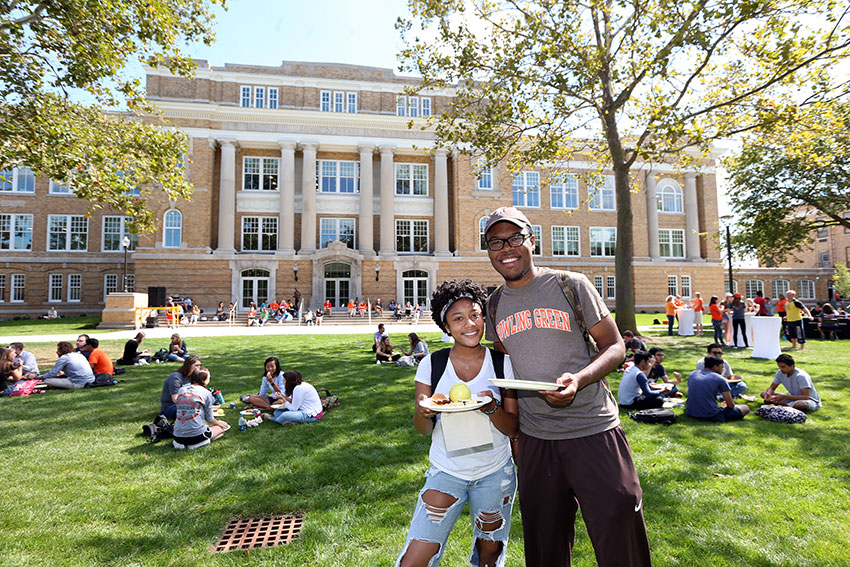
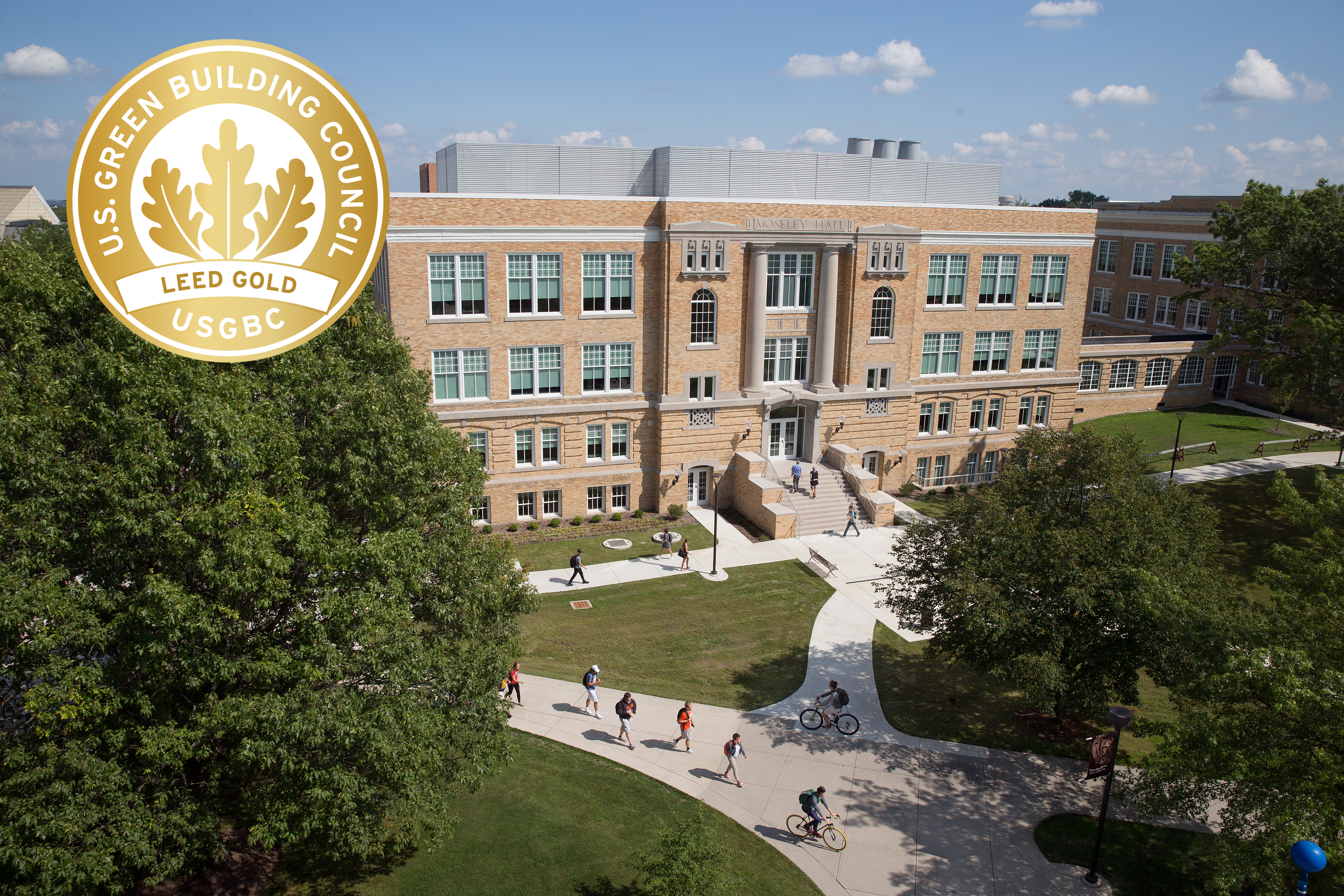
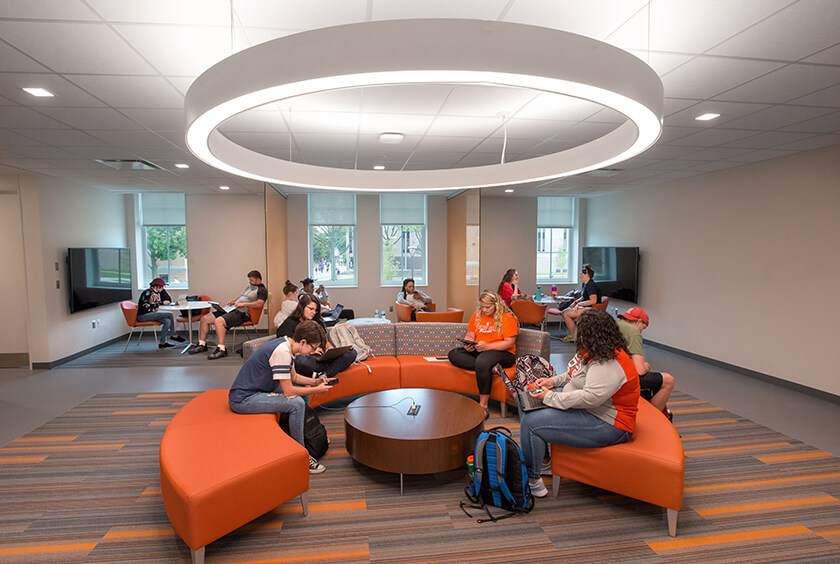
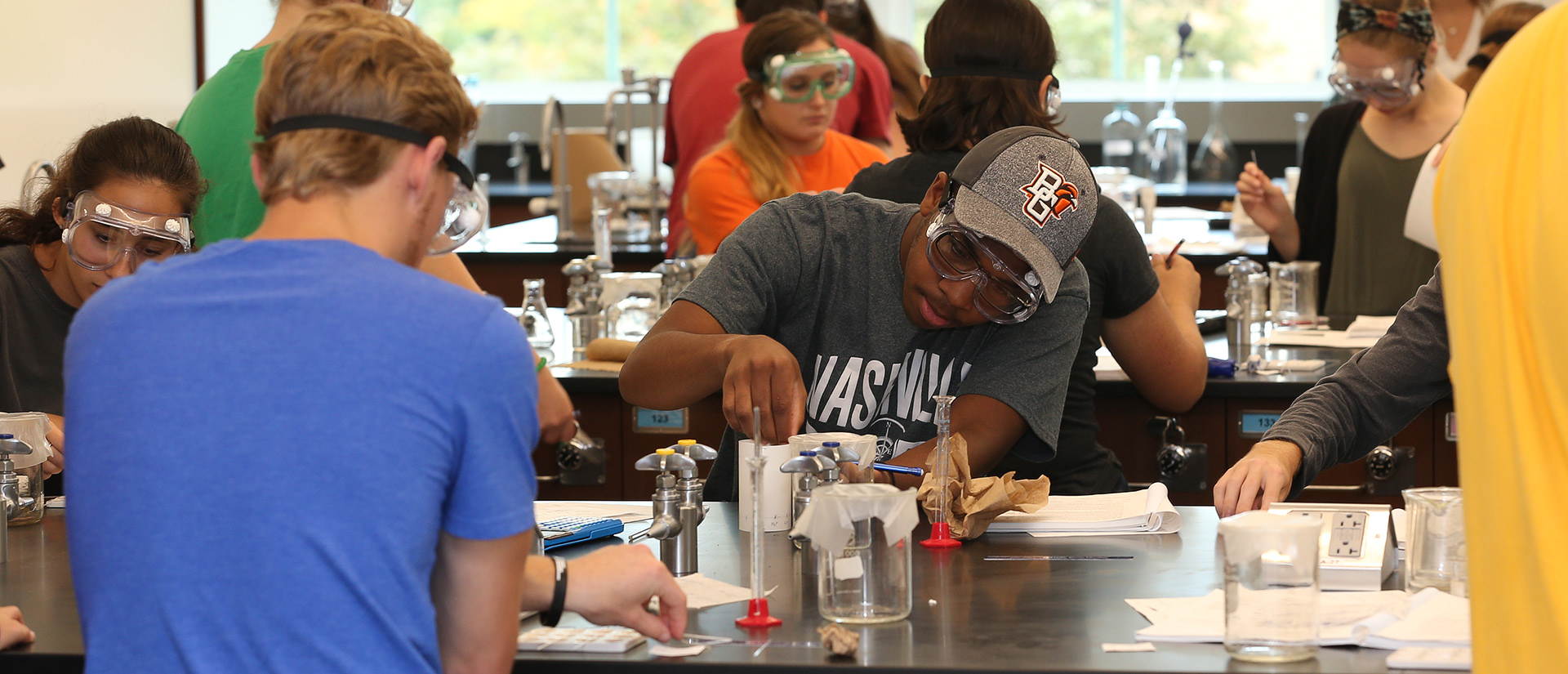
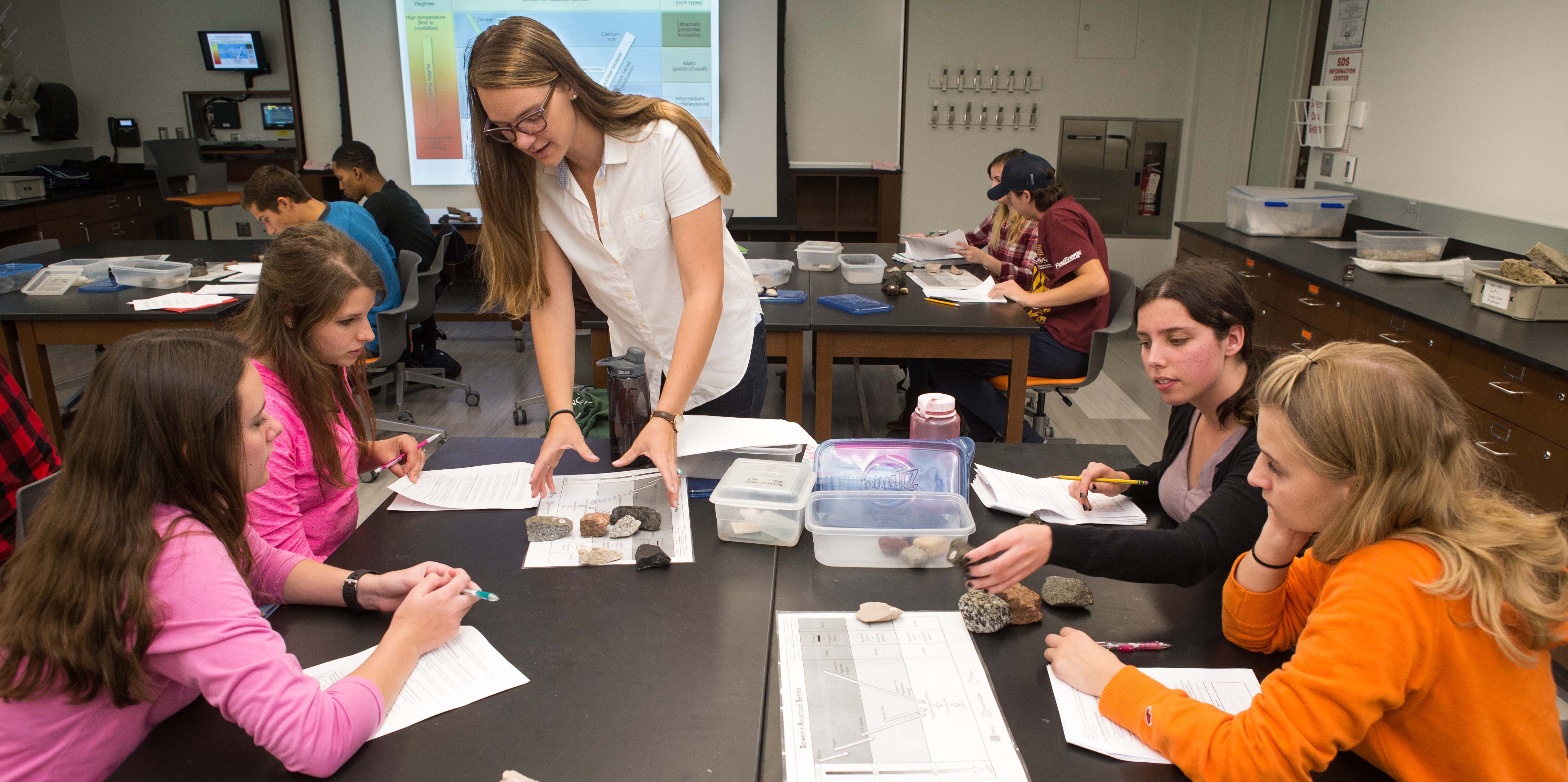
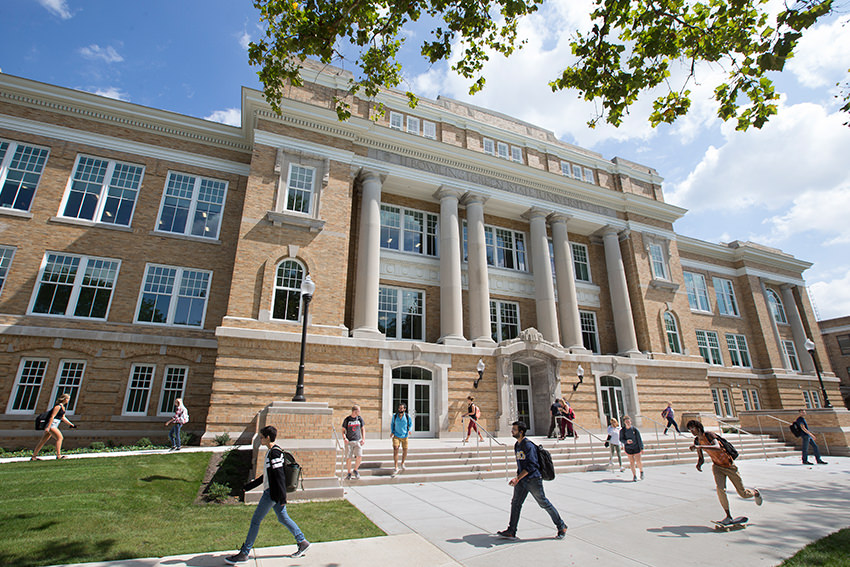
Moseley Hall Earns Gold LEED
Moseley Hall is Bowling Green State University’s tenth building on campus to be awarded the prestige of a Leadership in Energy and Environmental Design (LEED) certification. To receive LEED Gold, the highest recognition, Moseley Hall renovations had to earn points related to strict sustainability LEED construction standards. This point system considers materials selected for use, indoor environmental quality, innovation in design, water efficiency, and energy efficiency. Listed below are several impressive sustainability statistics based on these LEED criteria.
• Moseley Hall’s renovations will reduce the use of potable water by 38%
• The entire building will save 26% of energy costs
• 98 % of the on-site construction waste was diverted from the landfill
• Outdoor airflow and CO2 measurement devices have been installed in all densely occupied locations
• 82% of all wood used was certified by the Forest Stewardship Council
This feat is significant to BGSU due to the new opportunities for students and the community. Most importantly, LEED Gold provides students with a clean, cutting-edge space to learn. For BGSU these renovations will help to reach its goal of carbon neutrality by 2040. Secondly, through the local resources, LEED is able to give back to the local economy and save ecosystems around the world. Additionally, LEED construction saves investors’ money; this allows the university to invest the saved money back into its students! The LEED Gold certification of Moseley Hall is an accomplishment that will give generations of future students the ability to belong, stand out, and go far.
The Tradition of Friday Night Lights
A tradition the Office of Campus Sustainability has on a weekly basis is Friday Night Lights. This program is run with the help of volunteers that go around campus to academic buildings and turn off the lights in each room. The simple act of turning a light switch off has now reached a total savings of $100,000 for Bowling Green State University. To celebrate this milestone, it is worth looking back at the program’s inception.
Dustin Sabo, a graduate of Bowling Green and now Assistant Director in Admissions, saw a need for an energy reduction program on campus as an undergraduate student.
“I can remember walking around campus on the weekends as an undergraduate and thinking to myself that it was such a waste to have all the classroom lights on when I knew they would be used very infrequently, if at all, over the weekend”, said Sabo in an interview. He then saw a similar program at Penn State and knew that it was possible to start a program here at BGSU. However, he had no clue where to start.
Sabo was an Orientation Leader and made connections with administrator Andy Alt in the process. He pitched his idea to Alt, which was received with open arms, and was then directed to Dr. Nick Hennessy. Together they crafted the program that we see today. All of their hard work paid off and continues to even after Sabo has long since graduated.
“I wasn’t sure if anyone would show up that first day, but when they showed up, and continued to show up week after week, it was a great feeling knowing there were others on campus who had a similar passion”, Sabo on the success of the program. “I would also like to believe that through our actions and publicity we helped to change the mindset and actions of at least one person to think about how even their smallest change in behavior could have a big impact”.
Without the help from Dustin Sabo, this program would not exist. Friday Night Lights successfully reduces emissions and costs for BGSU, but it does more, it sets an example for taking small actions, building on those actions, and making big impacts. Turning off a light switch, taking a shorter shower, carpooling, or recycling are all examples of small actions that each of us can take to help the environment.
If you would like to volunteer with Friday Night Lights, it is every Friday night outside of the Union Theater (206 BTSU) at 6:30.
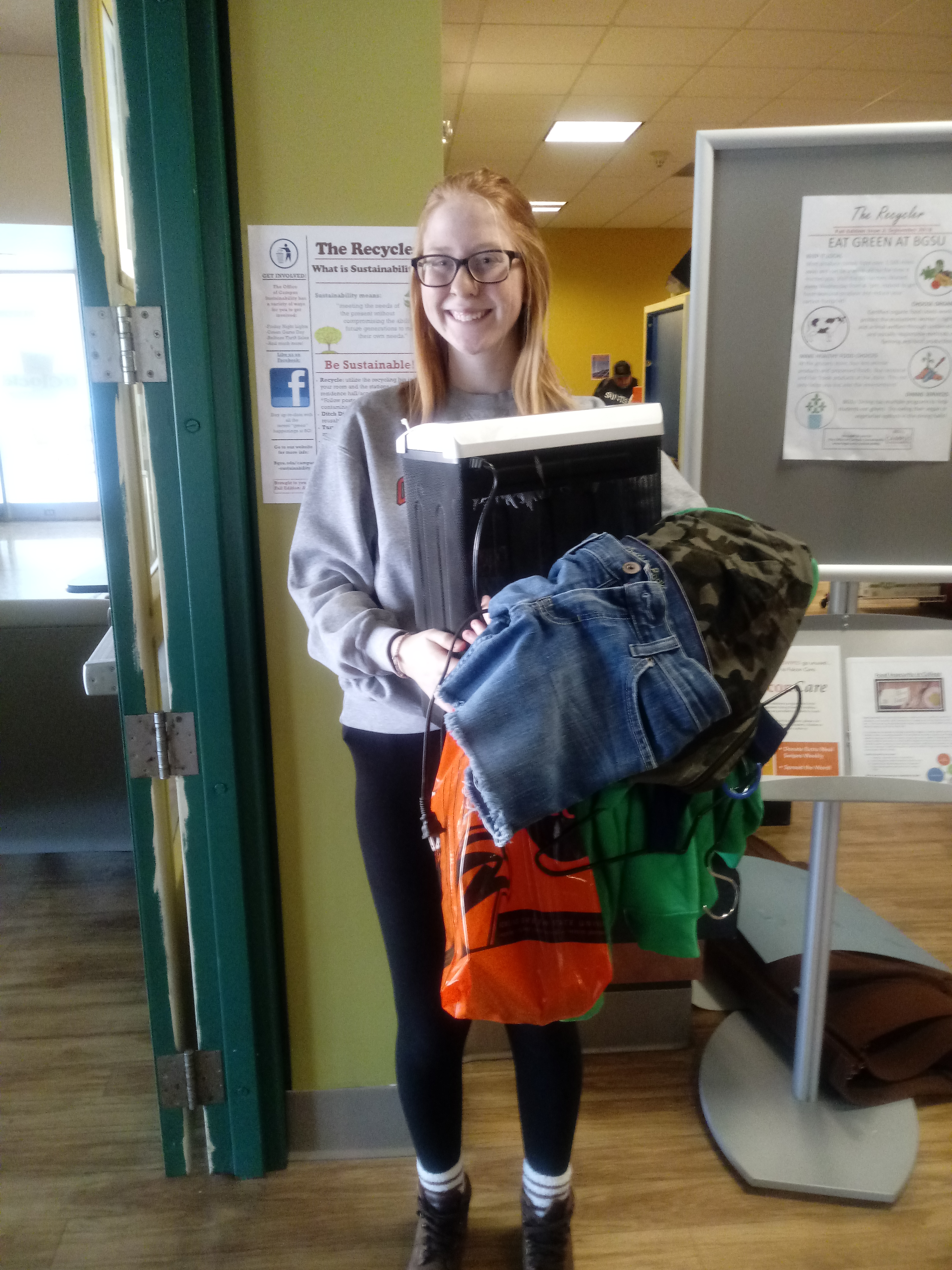
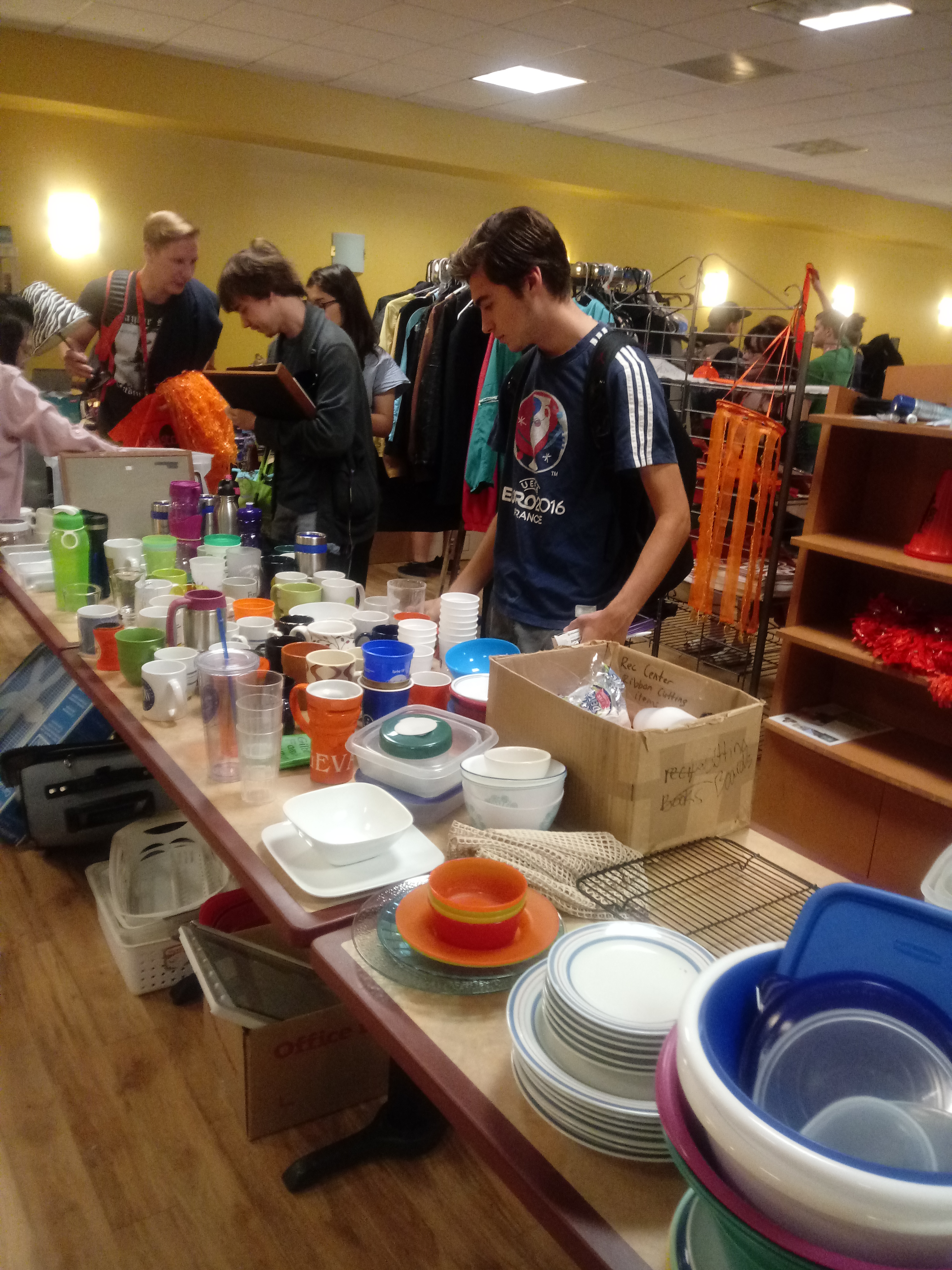
BGSU’s ReStore
Did you know that there is a store on campus that offers free appliances, clothes, school supplies, and home décor to Bowling Green State University students and staff?
It is the campus “ReStore”! The ReStore is open once a month to the entire campus community! Gently used apparel, dishware, kitchen appliances, school supplies, and seasonal décor are just a fraction of the inventory in the store.
Since the ReStore first opened its doors in 2010 its mission has been to eliminate nice, useable products from entering the landfill. This is done by accepting the donation of products from the campus community and supporting reuse rather than buying new.
So unclutter those closets, cabinets, and offices desks and donate the unwanted items to the Restore! To donate, drop the items off during a ReStore event or submit a work order through Campus Operations and reference ReStore donations in the body of the order!
Bring a reusable bag to our next event and fill it with ReStore items! Enter through the north stairway door of Kreischer Late Night (facing the Rec Center) and follow the signs. We hope to see you there!
Fall 2018 “ReStore” Dates
- October 24, 2018, 11:00am-1:00pm
- November 28, 2018, 11:00am-1:00pm
Green Game Day
The primary mission of the Green Game Day initiative is to encourage recycling and waste reduction at Bowling Green State University home football games. This goal is achieved through a combination of green recycling bags distributed to tailgaters and several clear-stream recycling containers set up in and around Doyt Perry Stadium.
This program would not be possible without the student volunteers at each game. It is these volunteers who distribute and collect the recycling bags, as well as sort through them to remove contaminants. Through their work at each home football game, these volunteers also help to educate fellow students and visitors about BGSUs sustainable initiatives.
So far this year, over two tons of recyclable materials have been collected from the first three home games. The recycling that will be collected at the Homecoming football game on October 13, 2018 will likely match that amount, if not exceed it. The program welcomes any and all volunteers for the Homecoming game; if interested, please sign up for a shift online at the Green Game Day site.
Our sincere thanks to all of the volunteers this season for their assistance and hard work!
- GGD Co-coordinators Dan Cline & Kyla Ahlfeld
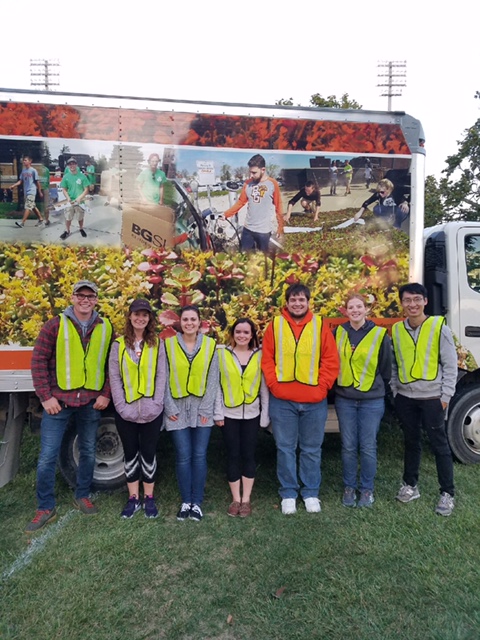
Meet The New Interns
Adam Smith
Adam started working for the Office of Campus Sustainability during the summer of 2018. He is majoring in Sociology with a planned minor in Sustainable Development and Activism. Adam also works at Inspired by Nature, which is an organic permaculture farm outside of Bowling Green, OH. Over the summer of 2018, he helped raise lavender, garlic, zinnias, sunflowers, various types of vegetables, and Australian freshwater lobsters.
Aside from school and working, Adam enjoys traveling and hiking around the United States. His favorite park near Bowling Green is Winter Garden Park, and his favorite National Park is Glacier National Park in Montana. One of his goals is to visit all 50 states before he leaves BGSU.
Adam’s on-campus activities include being a part of the Bowling Green Alternative Breaks Leadership Team (bGAB), Omicron Delta Kappa Fundraising Chair, and Green Fund Committee member. After BGSU he would like to obtain his MBA and Masters of Environmental Studies with a focus on Sustainable Energy.
Remington Schneider
Remington (Remey) Schneider started working for the office in August of 2018. He is from Cincinnati, Ohio and is a second-year studying Environmental Policy and International Studies. His first experience with the office was through Introduction to Environmental Science 1010, or ENVS 1010, during his first year on campus. This led to him volunteering for Green Game Day, Friday Night Lights, and When You Move Out, Don’t Throw It Out. Since then he has been excited to help the BGSU community become more engaged in sustainability and stewardship. He enjoys working with the ReStore and larger events like Sustainability Week or recruitment for Green Game Days. After graduation, Remey plans to attend either graduate school or law school to learn more about policies and procedures that affect the environment. Lastly, if he had any advice he would tell students to practice small acts of stewardship in their everyday life, such as using a reusable water bottle or walking to classes instead of driving a car.
Like staying up to date on all of BGSU's sustainability updates? Be sure to subscribe to this newsletter to get it sent to your email inbox each month!
Updated: 01/10/2024 10:47AM
